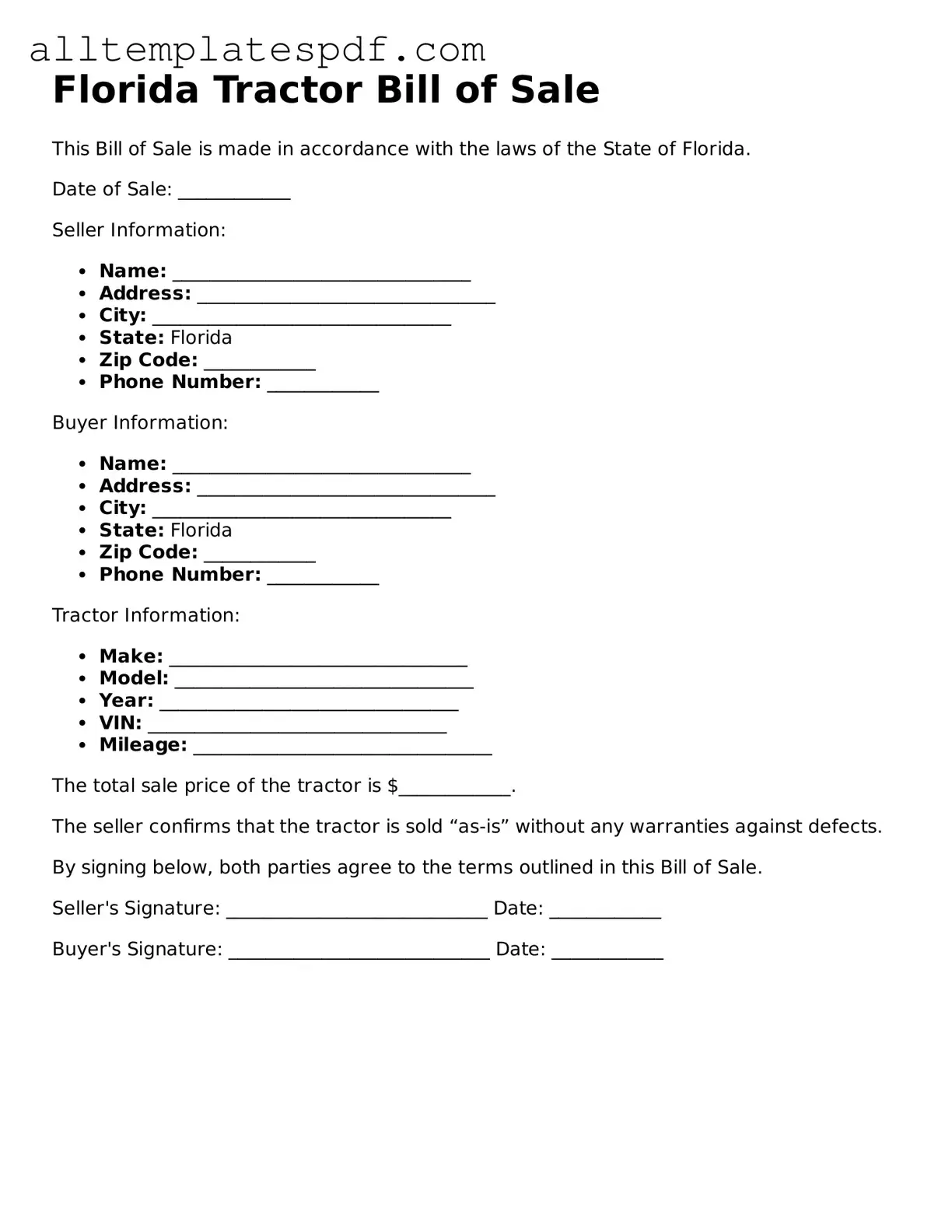Filling out the Florida Tractor Bill of Sale form can be a straightforward process, but mistakes can lead to complications. One common error is failing to include all necessary information. Buyers and sellers must provide complete details about the tractor, including the make, model, year, and Vehicle Identification Number (VIN). Omitting any of this information can create confusion and may even hinder the transfer of ownership.
Another frequent mistake is neglecting to sign the form. Both the buyer and seller must sign the Bill of Sale to validate the transaction. Without these signatures, the document may not hold up in legal situations, which could lead to disputes later on.
Many individuals also forget to date the form. The date of the transaction is crucial for record-keeping and can affect the timing of ownership transfer. If the date is missing, it may raise questions about when the sale actually occurred.
Inaccurate pricing is another pitfall. The sale price should reflect the agreed-upon amount. If the price is incorrectly stated, it could lead to tax issues or disputes over the transaction. It’s important to double-check that the price matches what was agreed upon verbally.
Some people mistakenly assume that the Bill of Sale does not need to be notarized. While notarization is not always required, having the document notarized can add an extra layer of protection for both parties. It serves as a verification of the identities of those involved in the transaction.
Another error is not keeping a copy of the Bill of Sale. After completing the form, both parties should retain a copy for their records. This document serves as proof of the transaction and can be important for future reference, especially for tax purposes or if any disputes arise.
Failing to check local requirements can also lead to problems. Different counties in Florida may have specific regulations regarding the sale of tractors. It is advisable to verify any additional paperwork or requirements that may be necessary in your area.
Some individuals do not provide a clear description of the tractor’s condition. Including details about any existing damage or repairs can help prevent misunderstandings. A thorough description protects both the buyer and seller and clarifies the state of the vehicle at the time of sale.
Lastly, many overlook the importance of including any warranties or guarantees. If the seller is offering any type of warranty, it should be clearly stated in the Bill of Sale. This protects the buyer and ensures both parties understand the terms of the sale.

